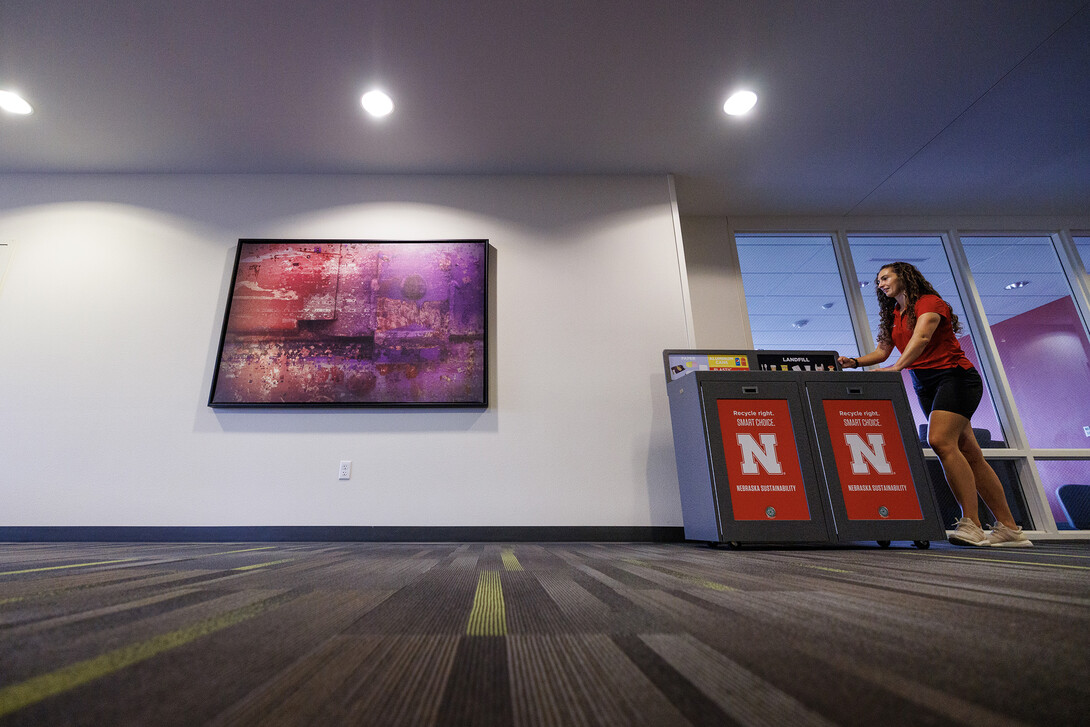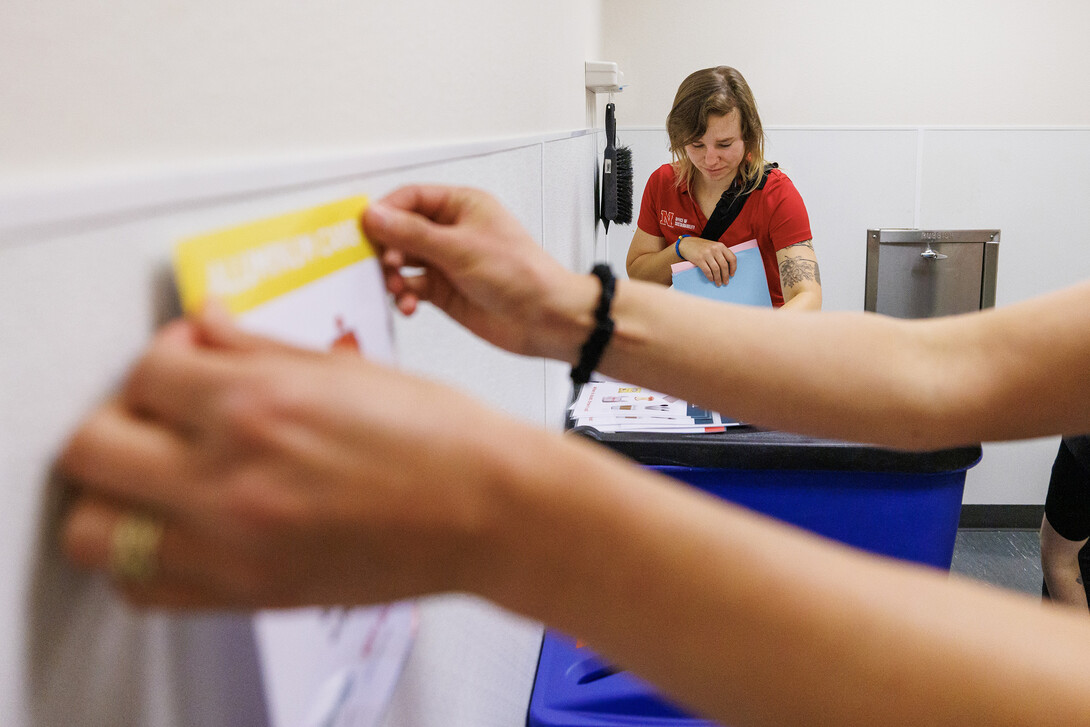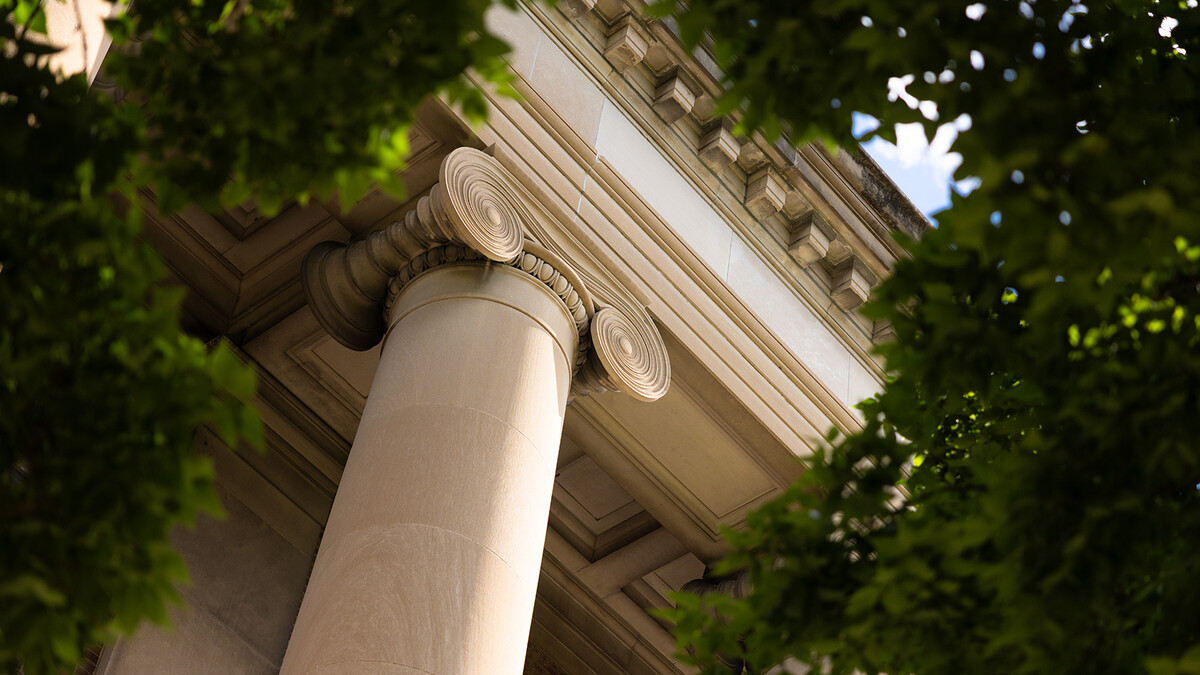
The University of Nebraska–Lincoln’s Office of Sustainability made a big push ahead of the fall semester to continue expanding the All in the Hall recycling program on campus.
The Sustainability team recently finished adding standardized waste stations to 21 academic buildings and three residence halls. All in the Hall has now been incorporated in 56 buildings on City and East campuses.
All in the Hall is UNL’s comprehensive recycling program which provides a consistent opportunity for the university community and visitors to recycle in buildings across campus. After piloting the program in December 2020, the effort was approved for phased implementation by the Executive Leadership Team in 2022.

Morgan Hartman, sustainability coordinator, said the most recent rollouts have also included residence halls, which are new to the program.
“Of the buildings included in the recent implementation was the Suites Housing Complex including the Robert E. Knoll Residential Center, University Suites and Eastside Suites,” Hartman said. “This implementation is a result of a growing collaboration with University Housing to operate a pilot version of the All in the Hall program.”
“This pilot is a great starting point for ensuring that recycling is consistent for students both where they live, and learn, on campus and will be used as a learning experience to inform future implementation in other Housing units on campus.”
In addition to waste stations being installed in high traffic locations, both signage and containers in each floor’s trash room were updated to align with the All in the Hall graphics and messaging in each of the three pilot residence halls.
The All in the Hall waste stations have four streams — paper, aluminum cans, plastic bottles and containers, and landfill. Corrugated cardboard is also accepted at the stations and should be flattened and placed behind the stations. Items placed in any recycling stream should be clean, dry, and free of food or other non-recyclable waste.
All in the Hall aims to make recycling easier and more centralized in buildings. The program supports institutional goals related to waste reduction and diversion outlined in the university’s Environment, Sustainability and Resilience Master Plan and promotes the responsible stewardship of resources. In buildings where All in the Hall stations are located, Custodial Services staff no longer collect landfill waste from individual offices, and trash cans are no longer located in classrooms and conference rooms. This allows Custodial staff to focus on servicing all waste streams from the centralized stations, including both landfill and recyclable materials.
Prior to the All in the Hall pilot program, waste audits in each of the pilot buildings revealed that an average 18% of materials found in landfill streams could be recycled instead. Since implementation, this has decreased to 8%.
The Office of Sustainability hosts expanded information about the All in the Hall program and other resources for living and working more sustainably on campus and beyond on its website. The campus community can also stay up-to-date through the sustainability newsletter.
The new buildings added to the All in the Hall initiative are:
- 501 Building
- Beadle Center
- Behlen Laboratory
- Bessey Hall
- Brace Laboratory
- Burnett Hall
- Oldfather Hall
- Richards Hall
- Temple Building
- Woods Art Building
- Prem S. Paul Research Center at Whittier School
- Robert E Knoll Residential Center
- University Suites
- Eastside Suites
- Animal Science Complex
- Baker Hall
- Keim Hall
- Life Sciences Annex
- Morrison Center
- Nebraska Veterinary Diagnostic Center
- Plant Sciences Hall
- Ruth Staples Laboratory
- Veterinary Medicine and Biomedical Sciences Hall
- VBS Annex







